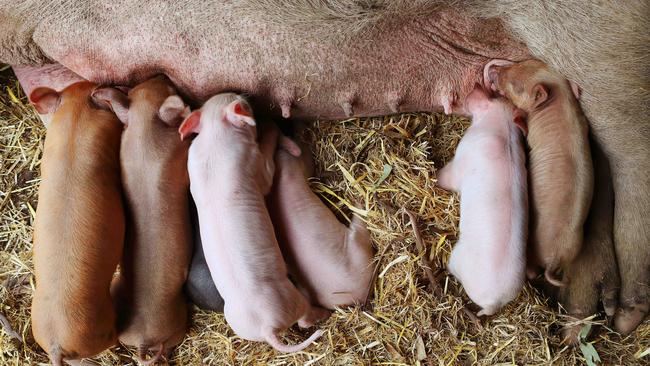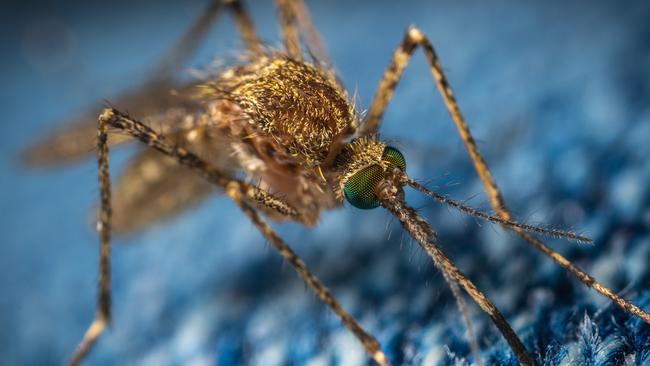Virus alert: Pork production losses of up to 5 per cent due to JEV
More than 70 farms have been struck down with Japanese Encephalitis Virus, with the extent of the damage not yet known.

Echuca pig producer Tim Kingma is one of the 76 pig farmers nationally whose farm has been struck down with the tropical disease Japanese encephalitis Virus.
The tropical virus, which was detected in mainland Australia for the first time in February this year, is the latest in a slew of viruses and diseases to threaten Australia’s biosecurity, including an outbreak of Foot and Mouth Disease in neighbouring Indonesia.
Mr Kingma, who is Victorian Farmers Federation pig group president, said the virus, which was detected on his farm in early March, was first spotted when he noticed an increase in stillbirths and mummified piglets.
Samples provided to the Department of Agriculture confirmed JEV on Mr Kingma’s farm, despite mosquito-prevention measures he had implemented across the property.
“We have mosquito controls for our farm, every year. There are issues every year with mosquitoes biting pigs,” Mr Kingma said.
“We try and keep the grasses down, keep laying water down and spray outside our shed. But obviously it wasn’t enough.”
While he was unsure the total number of sows affected, Mr Kingma estimated about 20 per cent of sows farrowing over the past six weeks had been affected by the virus.
“It’s significant,” he said.
“You could imagine any business if you took 20 per cent off what you wanted to sell at the other end … we’ve been heavily impacted. I would say though a lot of farms are worse off than me.
Australia Pork chief executive Margo Andrae said while the number of affected farms across the country has stabilised at 76, producers should still be preparing for when the weather eventually warms up, increasing the risk of mosquito bites.
“Numbers are definitely stabilising, but we knew this would happen. This gives us the time to support current affected farms, but prepare for when the weather warms up,” Ms Andrae said.
“But honestly, we don’t know the full impact.”
Ms Andrae estimated production loss across the country between 3-5 per cent of the nation’s pork herd, or as many as 120,000 piglets lost to the virus which otherwise would have made it to market.
“But the reality is, because we’re adapting to the virus as we go, there’s a lot we don’t know, which is a hard position for some of our producers,” Ms Andrae said.
“We’ve seen some farms with a bigger impact. It’s a really interesting virus, because of the way it spreads through mosquitoes, and how evert sow reacts.”

According to Agriculture Victoria, JEV can be transmitted to pigs, horses and humans through a mosquito bite.
It causes reproductive failure in pigs, but does not usually spread directly from animal to animal.
Affected adult sows may not show overt signs of disease, but if infected before 60 to 70 days of pregnancy either abort the pregnancy or give birth to mummified and stillborn piglets.
Japanese encephalitis virus was detected in mainland Australia for the first time in late February this year, with piggeries across NSW and Queensland affected.
The virus has the potential to be transmitted from mosquitoes to humans, but is not spread directly from pigs to people.
JEV cannot spread from pig to pig.
National surveillance efforts are being undertaken to identify new cases and determine the extent and spread of the disease.
Agriculture Victoria is working closely with industry, conducting surveillance activities and providing advice and information to farmers, livestock and horse owners.





